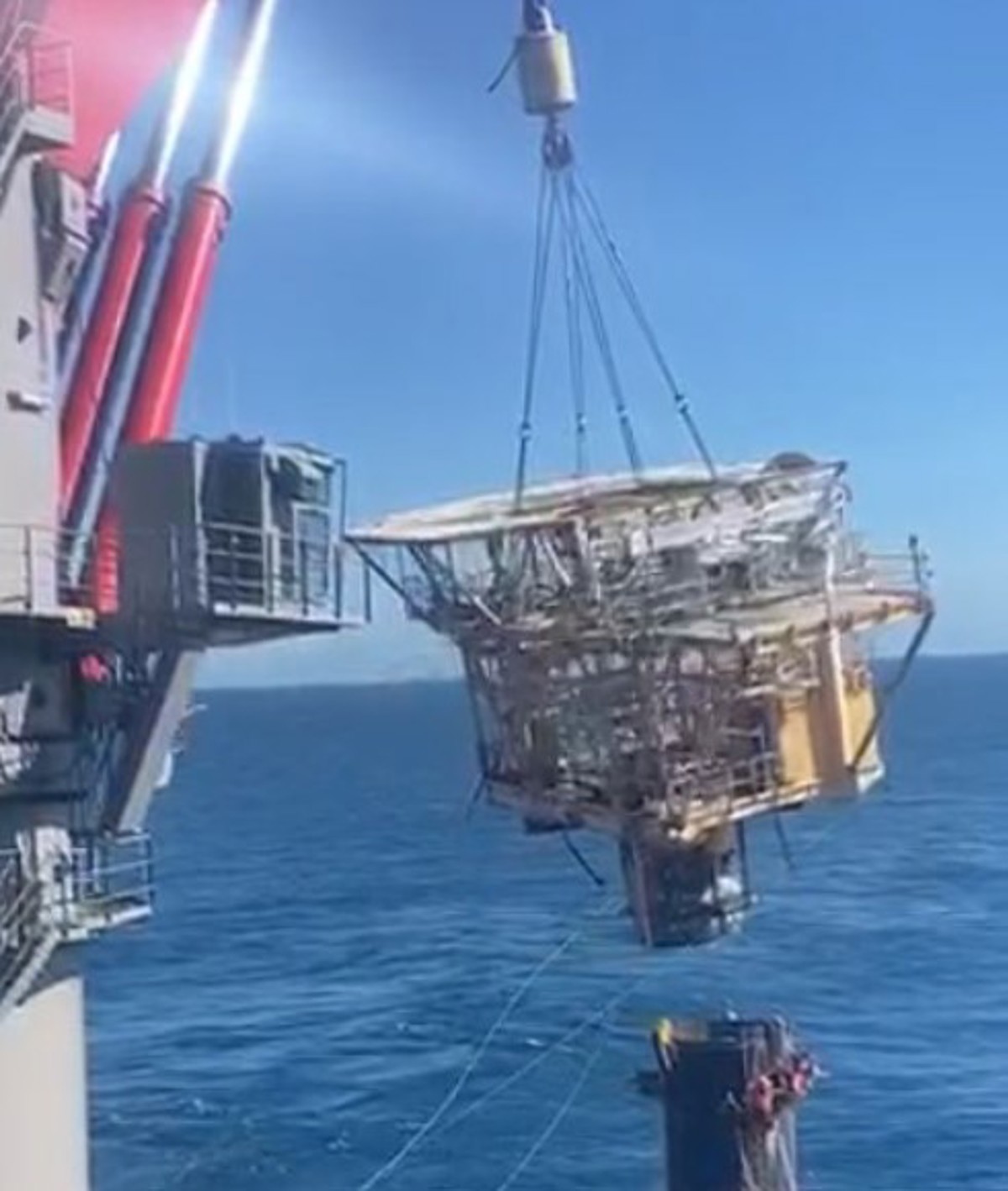Serious incident: topsides started swinging during lifting
- Safety Flash
- Published on 1 October 2021
- Generated on 6 July 2025
- IMCA SF 27/21
- 1 minute read
Jump to:
What happened?
During lifting operations, a topsides connected to pre-tensioned rigging became unstable and prematurely lifted off its substructure.
Two rope access technicians were on the substructure at the time of the premature lift and some personnel were on the back deck of the crane vessel when the crane tugger weak links parted.
The incident had a high potential for multiple fatalities.
What were the causes?
Our Member notes that:
- The crane vessel was on hire to an external contractor responsible for the work, including the engineering.
- The engineering assessment did not fully evaluate the effect of pre-tension and crane tip movements on the post-cut stability of the structure.
- How the crane would react to instability was not well understood.

Lessons learned
- This incident shows how important exhaustive expert verifications are to prevent a lift from going wrong and how significant the consequences could be.
- There is a sensitivity to stability inherent in this form of monopod structure, which will need taking into account in future.
Related Safety Flashes
-
IMCA SF 21/17
23 August 2017
-
-
IMCA SF 03/13
30 January 2013
-
IMCA SF 03/05
1 March 2005
IMCA Safety Flashes summarise key safety matters and incidents, allowing lessons to be more easily learnt for the benefit of the entire offshore industry.
The effectiveness of the IMCA Safety Flash system depends on the industry sharing information and so avoiding repeat incidents. Incidents are classified according to IOGP's Life Saving Rules.
All information is anonymised or sanitised, as appropriate, and warnings for graphic content included where possible.
IMCA makes every effort to ensure both the accuracy and reliability of the information shared, but is not be liable for any guidance and/or recommendation and/or statement herein contained.
The information contained in this document does not fulfil or replace any individual's or Member's legal, regulatory or other duties or obligations in respect of their operations. Individuals and Members remain solely responsible for the safe, lawful and proper conduct of their operations.
Share your safety incidents with IMCA online. Sign-up to receive Safety Flashes straight to your email.